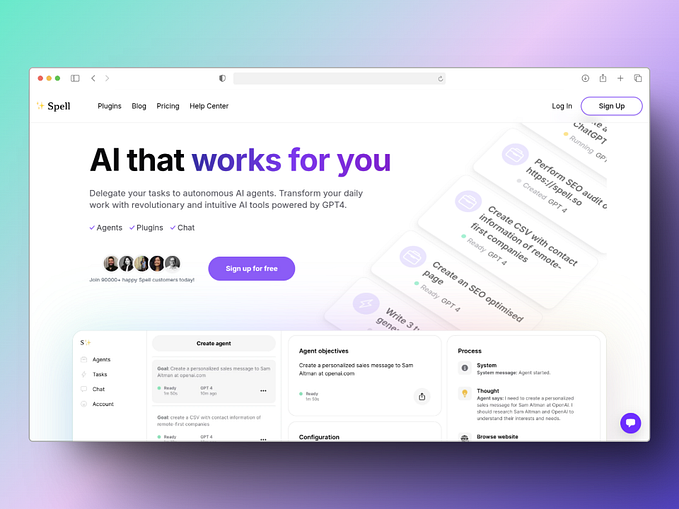Juggling Home Office, Childcare and your own projects without losing your mind
Covid-19 is here to stay (for now at least) and with it, many of us in IT have changed their Modus Operandi. Companies have acknowledged that working from home 5 days a week is indeed a valid option in most cases and teams have found new ways to work together in these trying times.
But add in some children plus closed daycare/kindergarten and suddenly things are different again.
Setting The Stage
Even before Covid-19 hit it off in early 2020, I had decided to spend more time with my child than my coworkers. Starting in January 2020, I was working 20h a week, spending 2 days at work and 1 day in my home office. That way I got to spend more time with our newborn daughter and my wife was able to get back to her own career part-time as well.
All was going well. My team and I had made arrangements for the most important meetings, we had dedicated communication channels for urgent and less important updates and ToDos and when we started sending her to kindergarten later that year (at that time, Germany was still mostly on top of the whole virus issue), I was able to get back to regular working hours (by now doing 100% home office work).
Little did we know what the year had in mind for us.
Get Your Priorities Right
When the first lockdown started, we had to make some tough decisions but for me, one thing was clear. While I did not plan to neglect my projects or leave my colleagues hanging, I was going to stick to my original plan: Be a father first and an employee second. I started talking with my team lead and our management early during our pregnancy and had found an agreeable compromise of flexible working hours that fit both my team and work as well as my family life.
Make sure you talk with everyone as soon as possible and listen to their concerns and requests. There might be mandatory team meetings or steps of your team’s workflow/release cycle that might require you to conform to certain time slots. List those, arrange your schedule around them and make sure to tell everyone on the team about it.
DON’T Stop Communicating
Nothing is worse than not being able to reach a colleague when you don’t know about his current progress, status and workload.
Keep everyone in the loop without imposing on them. You might be the one thrilled about your current life changes but maybe not everyone on the team. Find a good balance of small talk outside of meetings, crucial information in regular (daily?) meetings and regular updates.
For example, I usually give a small heads-up during our daily meeting in the morning about changes to my availability, upcoming doctor appointments and such. I try to keep this short and concise and only inform about the most relevant things.
If you use a ticket system such as Jira, Clickup or the like, update your tickets every evening. Make sure you have a maximum of 2 tickets “in work”, write short updates as comments in each ticket about possible blockers, dependencies and necessary feedback or your own progress. Don’t make your project/team lead ask for updates that should be available for them in case you are indisposed when they need it.
Commit your code often. Don’t hoard your changes in local branches, push daily at least and make sure your feature branch is up to date with the latest changes on develop (if you are using the “regular” git workflow with main/develop/feature branches)
Keep a reliable communication channel open during working hours. I am usually not a big fan of work-related chat apps on my smartphone but right now I am available for my colleagues via Slack and everyone knows that I might not read all chats at all times and certainly not emails but direct messages are a well-established way to get feedback from me as soon as I am available.
DO Stop The Meeting Madness
While it is crucial to keep good communication up, don’t waste your time in meetings that should have been an email. This is something you won’t be able to do alone so get your team lead’s support here (as well as your scrum master’s, if you have one) and try to get to a point where:
- every meeting has an agenda
- people don’t small talk or stray off-topic during the meeting
- meetings end with actionable results and responsibilities
- only the most relevant people attend the meeting
Most of these points were something I was striving for long before I cut my hours but now, more than ever, is this mandatory to stay productive.
As I said before, try to get support from your team lead/scrum master and stay respectful. It won’t help your situation if you cut off people in meetings because you feel like they are wasting your time but try to communicate your concerns openly and honestly.
DON’T Slack Off
Set yourself definite goals and stick to them. Don’t narrow this down to work-related tasks for your day job. For example, I try to find the time to work on my freelance career and post one article per week (preferably on a Monday but realistically anywhere during the week is fine right now), so I start planning a topic, make notes and keep a backlog of possible things to write about so that I can pick what fits my available time and creative mood.
During the day, I usually only have a few hours at my PC while our daughter sleeps so I don’t plan with those. While I take care of our daughter, I only do the most important tasks like planning and code reviews on my smartphone while she is occupied playing by herself and when something important comes up, I try to arrange a switch with my wife to take care of it, delegate tasks and make notes of what still needs to be done. In the evening, after putting our daughter to bed, I sit down and work on the most pressing issues at hand such as planning tasks for my team, giving feedback on open issues and working on code that is needed by others to continue with their tasks.
Do your chores asap! They build up and then they will eat up all of your weekends. Seriously… With 2 working parents, things can pile up fast. It took us a while to find a healthy rhythm for running the washing machine and dishwasher, picking up random toys, planning the next shopping trip, ordering stuff and making sure to prepare the next meal.
Right now our daughter is 17 months old and I started including here in my daily chores routine. Things will take longer but she has fun helping and being part of the process. She can sit in and dig through a pile of clothes while I prepare the next load of our washing machine. She loves taking things out of the dishwasher and handing them to me (I always remove all dangerous objects first, before I “unleash” her) and when I put up the wet clothing she eagerly gets the next piece or two for me from the basket with only a few pieces falling to the floor.
Delegate where possible
This next piece of advice might sound like a first world problem but think about hiring someone to help you cleaning and staying on top of things at home when money isn’t too tight. I wouldn’t have thought about this option in the past but we are now considering it. I would pay some money to have more time with my family not spent cleaning and
DON’T Stop Playing
I personally think one of the biggest mistakes many people make, when trying to be more successful, is getting rid of all regular playtime on their quest for maximum productivity… THIS DOES NOT WORK FOR EVERYONE!
For me, crossing 3 things from my daily todo list at 8 am after 30 minutes of sport, a healthy breakfast drink and a cold water shower might feel good once every few weeks and will make me feel accomplished and productive but this is by far nothing I could keep on doing day in and out.
I am not one of those overly productive super achievers. I can not and I do not want to get rid of all play in my pursuit of success and I’ll make the bold claim that neither are you.
During the week I try to find a healthy mix of late-night working and playing games with my wife. For us, nothing beats a round of Hearthstone, Divinity and sometimes we even dig out our old Diablo Accounts and start a new season character. If the little one falls asleep a bit earlier, maybe even pick out a good movie and make some popcorn.
I need this. We both need it. It’s good for clearing the head and recharging your creative energy. We don’t play games that grab you by the neck and drag you along for weeks on end. We stopped binging Netflix series and say no to MMO’s, no to subscription games and stuff where you are forced to play with strangers on the internet, form bonds, meet expectations. Don’t enter a new commitment.
DO Stay Healthy
Eat healthily! Sleep healthy! Yeah, right… I know, I know… You’ve got a kid keeping you up at night every now and then. Then, at least sleep as much as possible.
Try to form habits that help you manage your days. Make it a habit to eat a healthy breakfast in the morning. Make it a habit to go to bed early enough to be at least partly rested and relaxed the next day, even when you had to feed and put the child back to sleep in the middle of the night. Work out.
I started working out while spending time with our daughter. I’m going for longer walks with the dogs and her stroller and while we are in her playroom upstairs to create some space for my wife to get her work done undisturbed, I started incorporating exercises in our playtime. It’s amazing what you can do with a toddler that she will enjoy and still serves as an exercise for you.
Did anyone say Cross Fit? Guess I’m now one of those people, only with more drool (not mine) and fewer tires and sledgehammers. Also, the weight gradually increases as you get stronger. How convenient is that?
Split Up The Mental Workload
This is one thing I definitely need to work on, reducing the mental workload that my wife has.
If you don’t know the term, mental workload describes the constant task of keeping track of appointments, deadlines, events, groceries, cooking (planning in advance), bills, chores and more.
In many relationships, the mental workload is still resting heavily on the shoulders of wives and with kids at home, this often increases.
To help you and your partner to stay on good terms while locked in at home with work and kids and everything else, try to share the mental workload. It would have been a good idea before Covid-19 started but now more than ever, this can make or break your relationship with your partner and second hand with your kid(s) as well.
Find a good balance of who is responsible for what. I’m not good at tracking tasks in my head, something my wife seems to have managed all too well. For way too long I took for granted that those things are taken care of. I’m now working with a special shared calendar that I manage and developed a small 5 stack system for all the paperwork that comes with taxes, bills, contracts, applications, kindergarten, vaccinations and all that.
Whatever You Do, It Will Be Tough But Worth It
All in all, you can find ways to make it work, even with your kids at home most all of the time and both of you working. Just make sure to never direct any anger or frustration about issues at work towards your children. This might sound like a no brainer but one is way too quick with venting or showing frustration about things not going well and children take these things in, even if you did not mean to direct it at them.
Make sure you create a warm, loving and healthy place for them to grow up in.
Some words about me:
If you want to see more of my work and progress, feel free to follow me and check out my other articles. If you clap feverishly for the articles you like most, it will be easier for me to decide which directions to pursue in following articles so use your ability to cast a vote for future content.
I’m also currently working on other series covering complex React Native Setups using Typescript and scalable apps with Redux, where I’ll go into details about how and why I do stuff the way I do as well as some articles on my experience in building games for web and mobile with React.
Here are some of my recent topics:
- React Quick Start with Typescript, Redux and Router
- Linting/Prettier with Typescript
- Redux + Toolkit with Typescript
- Spread & Rest Syntax in Javascript
- clean and simple Redux, explained
- Game Theory behind Incremental Games
- Custom and flexible UI Frames in React Native
And if you feel really supportive right now, you can always support me on patreon, thus allowing me to continue to write tutorials and offer support in the comments section.










